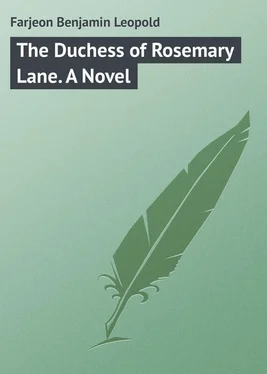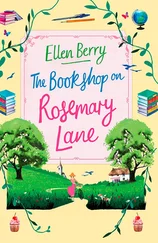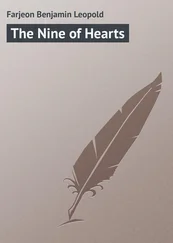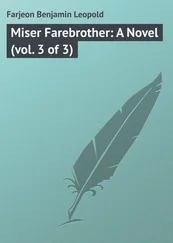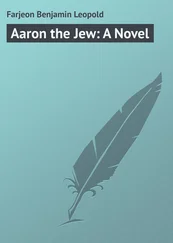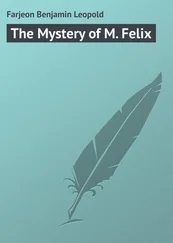Benjamin Farjeon - The Duchess of Rosemary Lane. A Novel
Здесь есть возможность читать онлайн «Benjamin Farjeon - The Duchess of Rosemary Lane. A Novel» — ознакомительный отрывок электронной книги совершенно бесплатно, а после прочтения отрывка купить полную версию. В некоторых случаях можно слушать аудио, скачать через торрент в формате fb2 и присутствует краткое содержание. Жанр: foreign_language, foreign_prose, на английском языке. Описание произведения, (предисловие) а так же отзывы посетителей доступны на портале библиотеки ЛибКат.
- Название:The Duchess of Rosemary Lane. A Novel
- Автор:
- Жанр:
- Год:неизвестен
- ISBN:нет данных
- Рейтинг книги:3 / 5. Голосов: 1
-
Избранное:Добавить в избранное
- Отзывы:
-
Ваша оценка:
- 60
- 1
- 2
- 3
- 4
- 5
The Duchess of Rosemary Lane. A Novel: краткое содержание, описание и аннотация
Предлагаем к чтению аннотацию, описание, краткое содержание или предисловие (зависит от того, что написал сам автор книги «The Duchess of Rosemary Lane. A Novel»). Если вы не нашли необходимую информацию о книге — напишите в комментариях, мы постараемся отыскать её.
The Duchess of Rosemary Lane. A Novel — читать онлайн ознакомительный отрывок
Ниже представлен текст книги, разбитый по страницам. Система сохранения места последней прочитанной страницы, позволяет с удобством читать онлайн бесплатно книгу «The Duchess of Rosemary Lane. A Novel», без необходимости каждый раз заново искать на чём Вы остановились. Поставьте закладку, и сможете в любой момент перейти на страницу, на которой закончили чтение.
Интервал:
Закладка:
Farjeon B. L. Benjamin Leopold
The Duchess of Rosemary Lane / A Novel
The Prologue
"We see
The seasons alter: hoary-headed frosts
Fall in the fresh lap of the crimson rose;
And on old Hymen's chin and icy crown
An odorous chaplet of sweet summer buds
Is, as in mockery, set."
PART THE FIRST
It is a lovely morning in April. The last drops of a radiant shower have fallen, and Nature is smiling through her tears, as might a happy maiden in the sparkling face of her lover, who, suddenly and unexpectedly, has brought her joyful tidings. The titlark and the whitethroat, and other feathered visitors of spring, are flying hither and thither in glad delight, singing their blithest songs, and carrying rays of sunlight on their wings to illumine the summer nests which they are building. Joyously busy are these graceful citizens of the woods, and proud of their work; they chirp, and twitter, and exchange glad greetings, as they fly hither and thither, and when they rest from their labour of love on the sprays of the common beech, they seem to be sitting in bell-shaped thrones of emerald, while the dew upon the flowers of the silver birch glitters like drops of molten gold in the eye of the sun.
Surrounded by these and myriad other evidences of spring, stands a fair and beautiful girl, herself in the spring of life. The name of the place is appropriate to her and to the season. Springfield is an enclosed park of forty acres, the beauties of which are jealously hidden from vulgar gaze. It is the most picturesque portion of an important estate, at present in the possession of Lady Josephine Temple, who lies sick in the quaint old house yonder, built in the Elizabethan style, the designs for which are said to have been prepared by John of Padua. But John of Padua and all the historical associations of the house are as dead letters to Lady Temple, who has sufficient food for contemplation in her own immediate affairs and condition. The blinds of the room in which she lies are drawn down for the express purpose of shutting out the day, in accordance with the ancient formula, which provided that the sick should be depressed and weakened by dim light and silence, instead of cheered and strengthened by sunlight and cheerfulness.
To beautiful Nelly Marston, as she stands by the quaint old windows in the laughing sunlight, with diamond drops of rain glistening in her bonny brown hair, and on her lashes, -
"The April in her eyes; it is love's spring,
And these the showers to bring it on," -
to her comes, with a bashful air upon him, the son of the head gardener of Springfield, a young man of twenty-five or thereabouts, fairly handsome, fairly well-made, and, through the long services of his father, fairly well-to-do in the world. He has in his hand some loose flowers, and a small bouquet of lilies of the valley, arranged in good taste, and looking, with their white petals and their background of exquisitely green leaves, like turrets of ivory carved out one above another, built up on emerald mountains. The young man, with a world of admiration expressed in his manner, holds out the lilies to Miss Nelly Marston, with a shyness that would have been comical in one so strong had his earnestness allowed scope for any quality less strong than itself.
"May I offer you these, miss?"
As though he were offering her his heart, which, indeed, he was ready and eager to do, but lacked the courage.
"Thank you, John," she says, turning the flowers this way and that, with as dainty a coquetting with man and flower-though she does not look at him -as well could be. Then she selects two or three of the lilies, and places them in her brown hair, where they rest like white doves in an autumn forest. John's heart is full as he sees his flowers thus disposed. Nelly, then, inhales the fresh air, demonstratively, as though it were nectar. "What a lovely morning! And yet it was blowing last night, almost like winter."
"Ah, you heard the wind, miss," responds the young gardener, delighted at the opportunity of exchanging a few words with the girl who had but lately come to Springfield, and who had taken his heart captive the moment his eyes rested on her fair face. A thrill actually runs through his foolish heart at the thought that he and she were awake at the same moment listening to the wind. "It is a good sign, miss, for harvest."
"I have heard you are weather-wise, John," says Nelly Marston, with a little laugh sweeter to the young fellow than the sweetest chime of bells, or the sweetest music of birds. "Harvest-time is far off. In what way is it a good sign?"
"When April blows his horn, it's good for hay and corn. An old saying, miss."
"As old, I dare say, as that April showers make May flowers." (Nelly Marston is almost as pleased as the young gardener himself at the opportunity for conversation. She finds Springfield very dull. Every soul in it, with the exception of the mistress, is a servant, and Lady Temple, a childless widow, is not remarkable for cheerfulness or lively manners. There is no one at Springfield with whom the girl can associate.) "These lilies are very, very pretty, John! What is that flower you have in your hand, that one with the spotted leaves?"
"This, miss? It isn't very handsome, but I can't resist picking a bit when I first catch sight of it in the spring hedges, because it reminds me of the time when I was a little un, and when me and the others used to play at lords-and-ladies with it. It's almost a medicine flower, too, miss, the cuckoo-pint."
"The cuckoo-pint! Is lords-and-ladies another name for it?"
"Not a proper name, miss, but that's what we used to call it. It's come down to us in that way."
"And the cuckoo flower, too! I have heard of the cuckoo flower, of course, but never of the cuckoo-pint. Lords-and-ladies! Give it to me, John, will you?"
"With pleasure, miss," answers the delighted and palpitating John. "I'll pick you a bunch of them, if you like, miss."
"Yes, do! But-I am a very curious person, John, always wanting to know things- why is it called lords-and-ladies?"
"I don't exactly know, miss, except, perhaps, that it changes more than any other flower."
"And lords-and-ladies do that?"
"It isn't for me to say, miss. I only repeat what I have heard. There's other names for it. If you'll allow me, miss." John's nerves tingle as he takes the flower from the girl's hand, and in doing so, touches her fingers. The contact of her soft flesh with his is a concentrated bliss to him, and sets his sensitive soul on fire. "You see, I pull down this hood" – (he suits the action to the word, and turns down the outer leaf) – "and here's the Parson in his Pulpit. You might fancy 'twas something like it, miss."
"You must not make fun of parsons, John. My father was one."
John, who is a staunch church-goer, and by no means irreverently inclined, is instantly imbued with a deeper reverence than ever for parsons, and says apologetically,
"Tis not making fun of them, miss, to liken them to flowers. If I was to liken them to medicine bottles, now, with the white labels tied round their necks, 'twould be different; but I wouldn't go so far as that."
Nelly Marston laughs, the likeness of medicine bottles to the clergy is so clearly apparent.
"It is a long stretch either way, John. I must go in now. Don't forget to pick me a bunch of lords-and-ladies!"
"I'll not forget, miss."
The happy young gardener touches his cap, and walks away with a blithe heart, to search at once among the hedges for this particular species of the arum. Be sure that none but the very finest specimens will meet with his approval. From this day forth the cuckoo-pint holds a curiously-tender place in his memory, and the season
Читать дальшеИнтервал:
Закладка:
Похожие книги на «The Duchess of Rosemary Lane. A Novel»
Представляем Вашему вниманию похожие книги на «The Duchess of Rosemary Lane. A Novel» списком для выбора. Мы отобрали схожую по названию и смыслу литературу в надежде предоставить читателям больше вариантов отыскать новые, интересные, ещё непрочитанные произведения.
Обсуждение, отзывы о книге «The Duchess of Rosemary Lane. A Novel» и просто собственные мнения читателей. Оставьте ваши комментарии, напишите, что Вы думаете о произведении, его смысле или главных героях. Укажите что конкретно понравилось, а что нет, и почему Вы так считаете.
